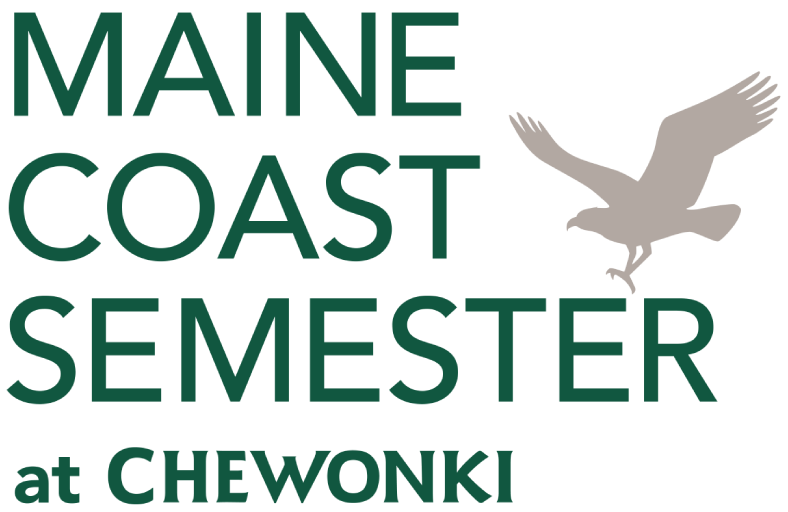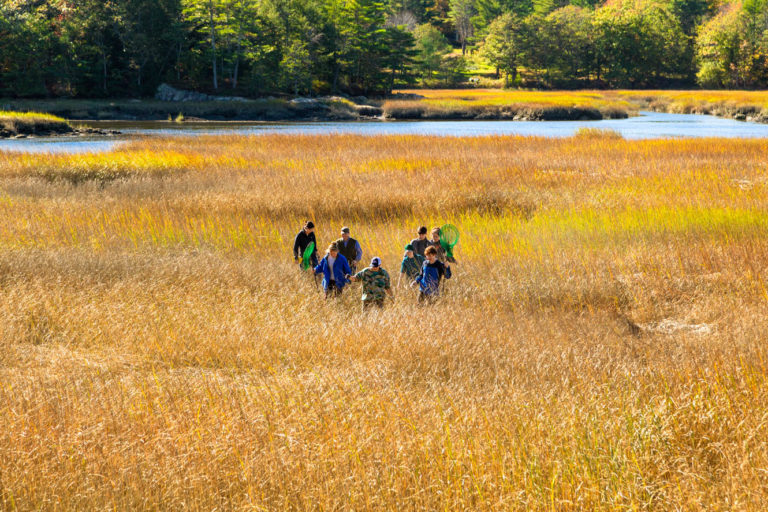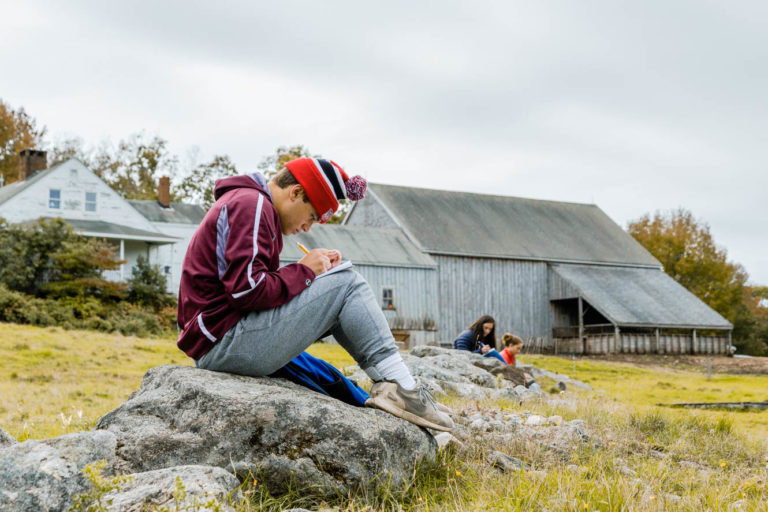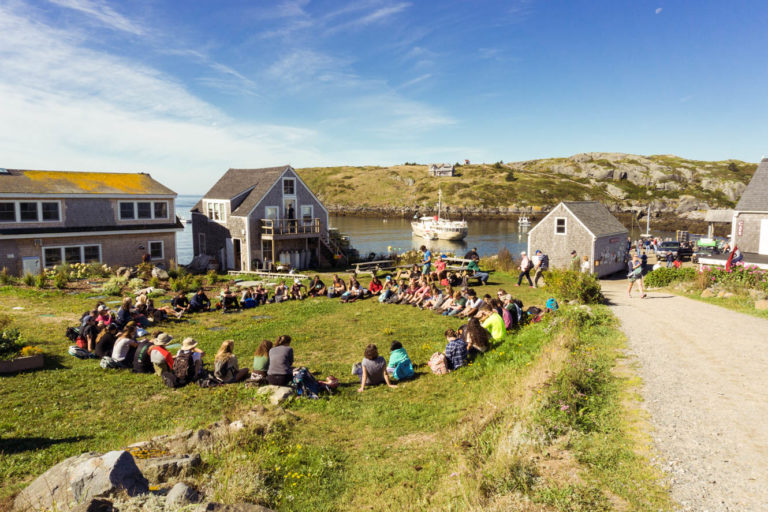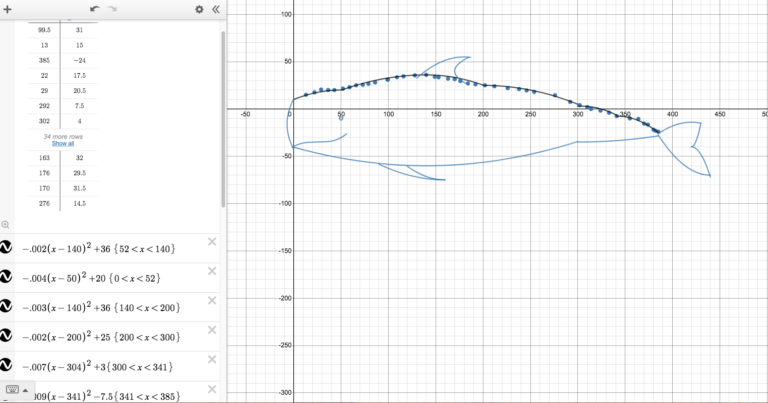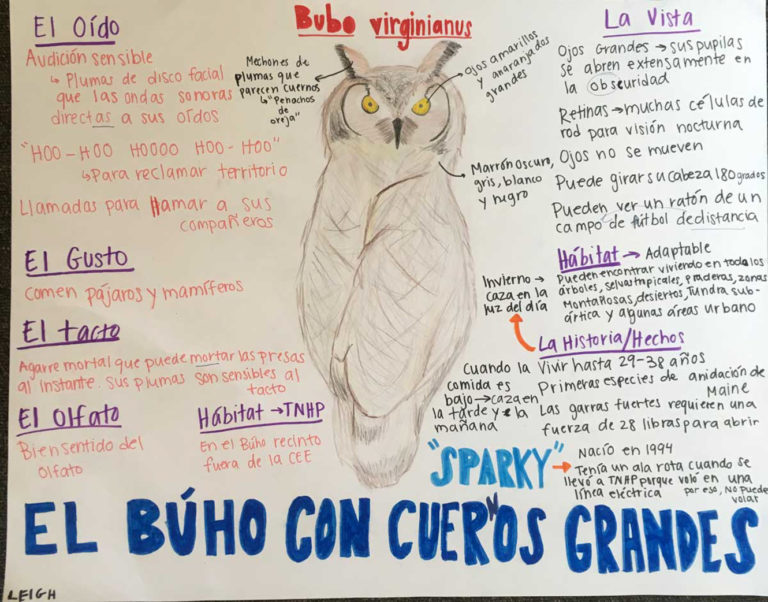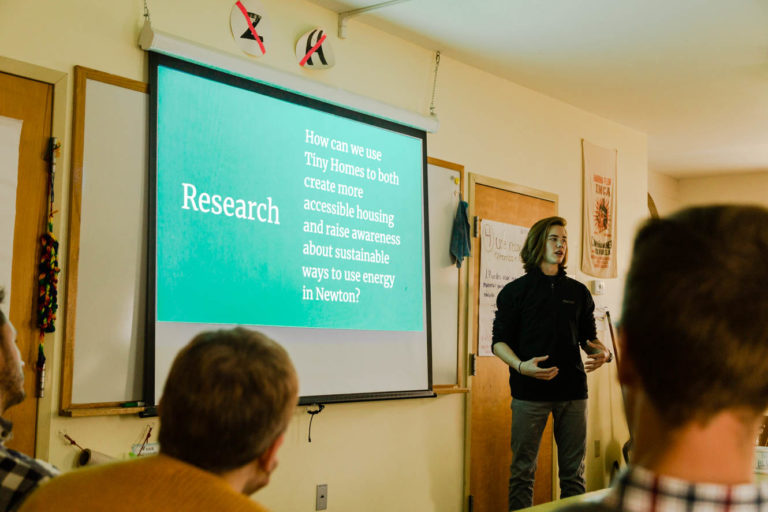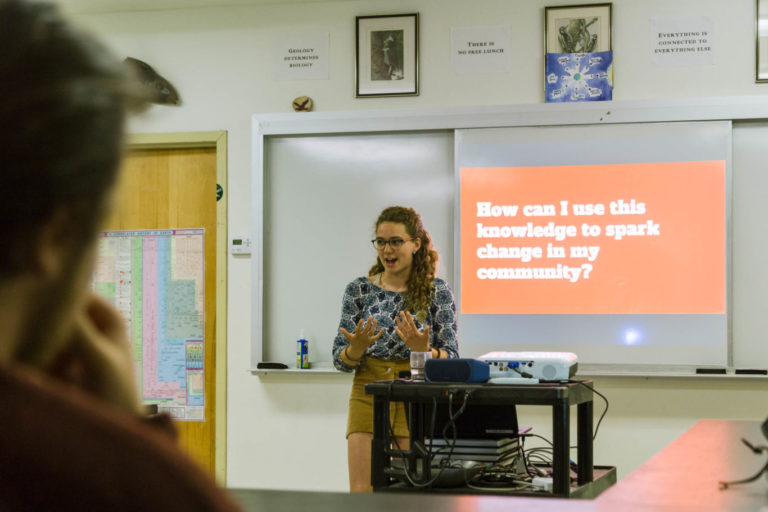Human Ecology
Human Ecology explores the reciprocal relationships between humans and the natural world. We believe this offers a meaningful framework to develop active citizenship as we uncover ways in which we as individuals and communities interact with and impact the natural world.
Maine Coast Semester Capstone in Human Ecology (½ credit)
Required (P/NP/Pass with Honors)
All students at Maine Coast Semester take a half-credit course, the Capstone in Human Ecology. Meeting twice each week, students investigate place-based case studies in human ecology topics such as energy, water, and waste systems. A key piece of this is an integrated unit on farm and food systems that uses our very own Salt Marsh Farm as a guide to investigate human ecology issues around food and farm economics, labor and social justice issues, food policy and regulation, food ethics, and more. As a capstone, this course is designed to synthesize themes from across the MCS curriculum and programming, including guest speakers on Friday nights and outdoor leadership experiences. Coursework consists of both Case Study Reports and periodic written Reflections on students’ growth in the MCS Goals for Graduates (Sense of Self, Sense of Place, Community Involvement, Engaged Learning, Effective Communication). In the final week of the program, students start to apply these tools beyond Chewonki by constructing a human ecology profile of their home regions and making informed suggestions of feasible projects that strive to improve some aspect of their community’s relationship to the natural world. This project culminates in students sharing their process and product with the broader community, both as means of feedback and celebrating student work.
